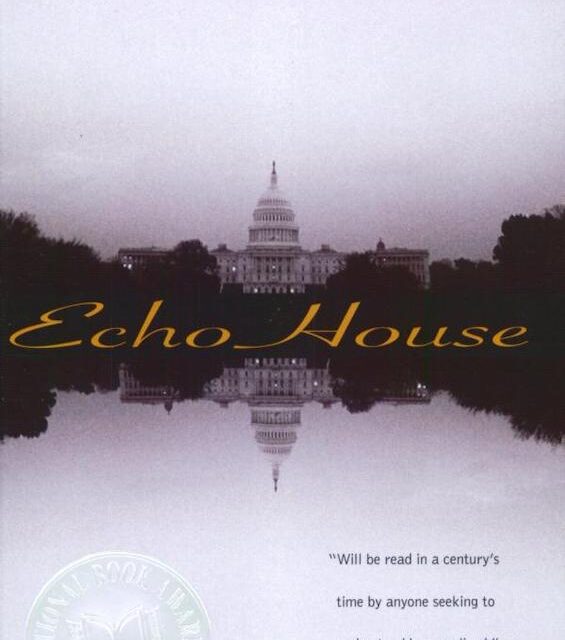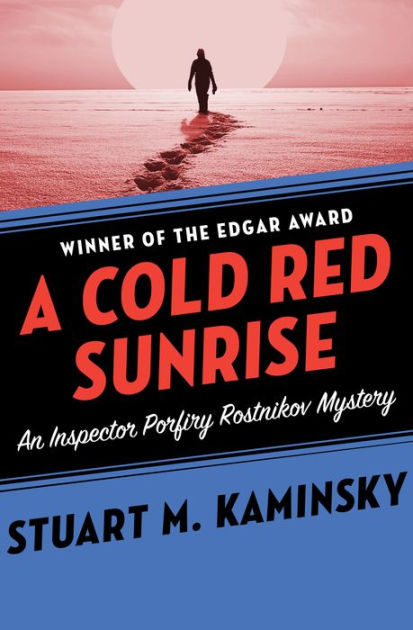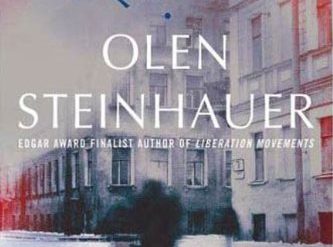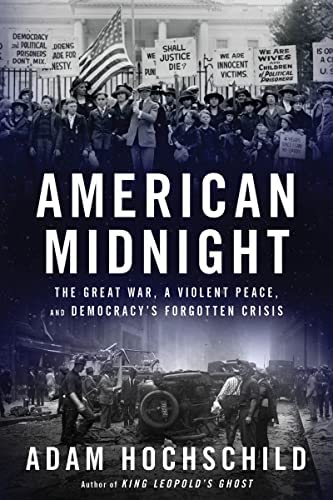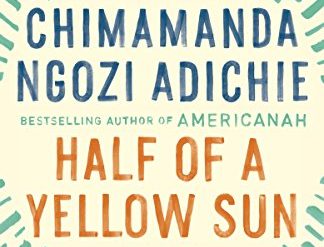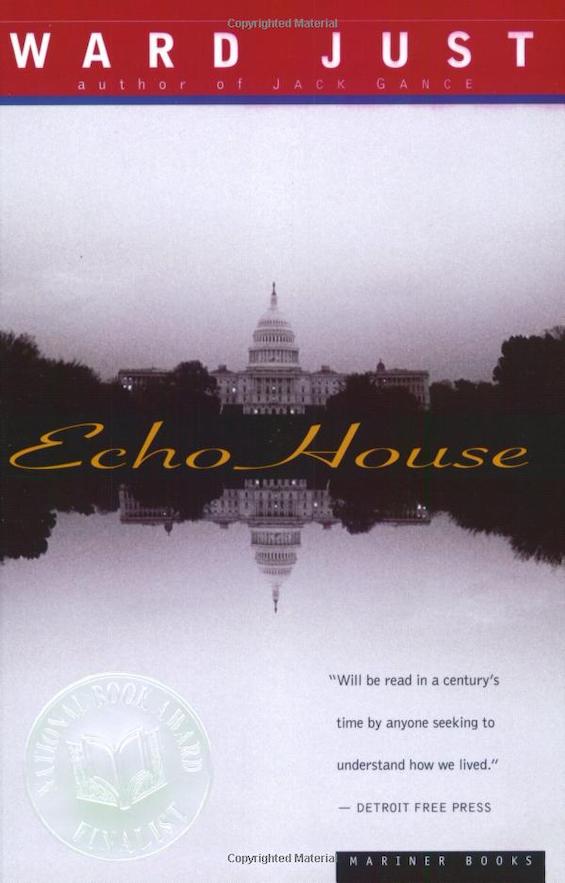
Estimated reading time: 9 minutes
Please focus on the headline. What you’ll see below is a list of the five best novels about politics—as distinct from political novels. The stories here cast light on the mechanics of the political process—insider baseball, if you will. By contrast, a political novel reflects the author’s political philosophy, highlighting racial or economic injustice, for example, but not necessarily connecting it to the political process of elections, autocracy, or collective leadership.
In fact, there are two lists here. I’ll begin with my choices for the top five novels. Following that you’ll find a longer list that includes other good examples of fiction about politics. However, I’ve limited myself to a single title by any author in the top five list.
Books are listed in alphabetical order by the authors’ last names.
I updated this post on January 8, 2024. And in doing so, I couldn’t resist adding a sixth great novel about politics to this list. So, there are now six, not five that appear below.
The five best novels about politics
Echo House by Ward Just (1997) 320 pages ★★★★★—Who wields the real power in Washington, DC?
It’s a commonplace that what transpires “inside the Beltway” ringing Washington, DC, is at best a poor reflection of American views and values. Over the years, scholars, pollsters, and pundits have attempted to understand this contrast, but the mechanistic tools of science and the biases of political analysts fail to grasp the nuances of the way things get done in the nation’s capital. Reading fiction is a better route to understanding the peculiar character of Washington’s insular community.
For example, the work of Thomas Mallon (Dewey Defeats Truman, Watergate) offers more insight into the scandal-plagued years of the Nixon and Reagan Administrations than anything else I’ve read. But the reigning master of American political fiction is Ward Just. Echo House, the eleventh of his eighteen novels, is a brilliant portrayal of three generations of Washington deal-makers.
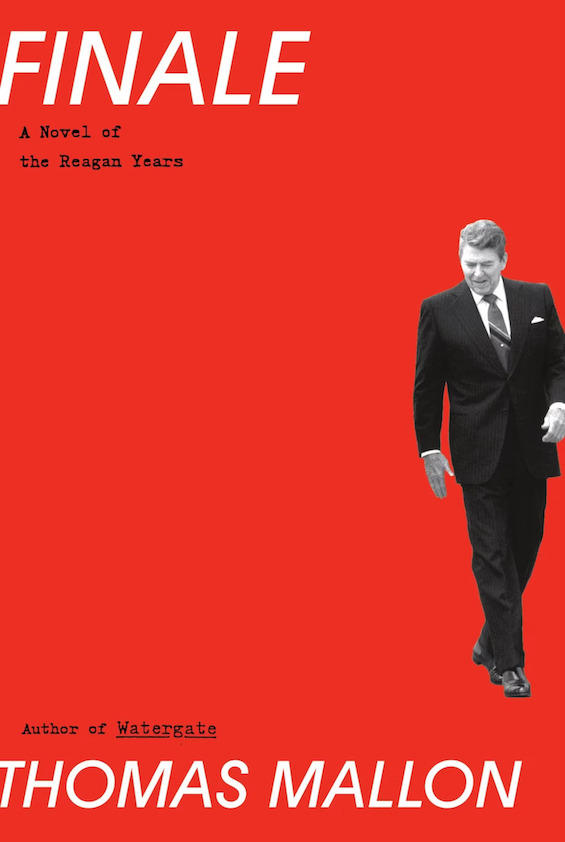
Finale: A Novel of the Reagan Years by Thomas Mallon (2015) 560 pages ★★★★★—Ronald Reagan deconstructed in a new novel
Here’s a view of Ronald Reagan, through a glass, darkly. In Thomas Mallon’s new novel, Finale: A Novel of the Reagan Years, our fortieth President emerges as an enigmatic figure. Alternately muddle-headed and brilliantly articulate, Mallon’s Reagan is hard to read. In the author’s telling, Nancy Reagan sums up her view of the man after half a century of marriage in that spirit: “she didn’t know who he was, and she never had.” Another character in the novel remarks in conversation that “‘he’s the most impersonally warm man I’ve ever encountered. [His staff] won’t know how to figure him out.'” Yet another looked on him as “the most deeply shallow man she’d ever met.”
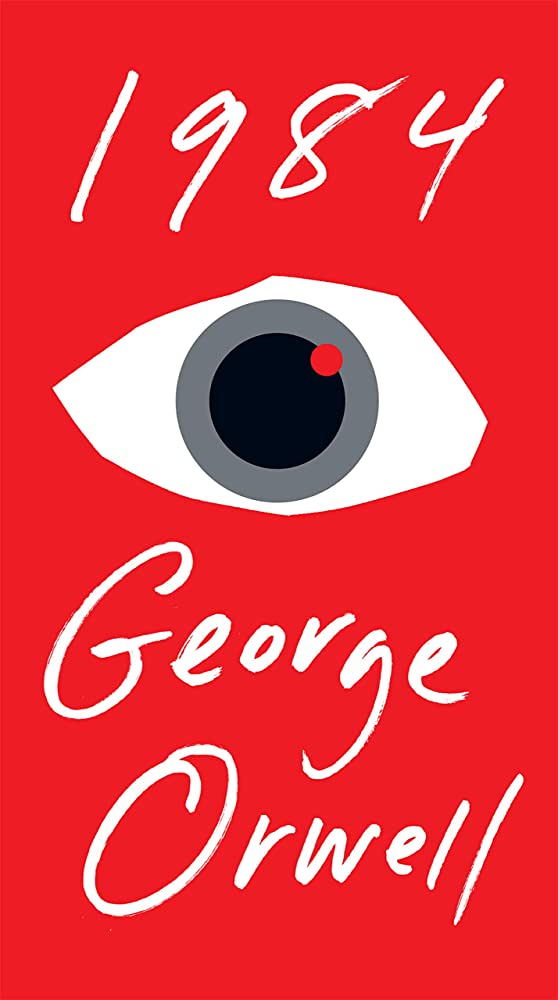
1984 by George Orwell (1949) 328 pages ★★★★★—Is the U.S. on the road to totalitarianism?
In 1984, Orwell relates the story of Winston Smith, a middle-ranking official in the Party that has total control over Oceania. Smith lives in London in what used to be called Britain. The country is now a small part of a globe-spanning empire that incorporates the British Isles, the Americas, Australia, and many of the Pacific islands. Oceania is one of three such empires. It’s in a state of total and constant war with either one of the others at any given time; they change sides frequently.
The ruler of Oceania is Big Brother, whose greatly enlarged portrait appears on walls and in windows virtually everywhere. (“BIG BROTHER IS WATCHING YOU.”) Apparently, no one has ever actually seen, much less met, Big Brother. The elite Inner Party enforces his rule, supported by the much larger numbers of Outer Party members such as Winston.
George Orwell was one of the most important writers of the 20th century, and 1984 is one of the era’s most significant books. It’s well worth reading for its own sake—and as a cautionary tale about the dangers inherent in authoritarianism. The totalitarianism envisioned by Orwell may overstate the dangers to an extreme degree. But an authoritarian ruler can do a great deal of damage even without absolute power. Just take a look around the world we live in today.
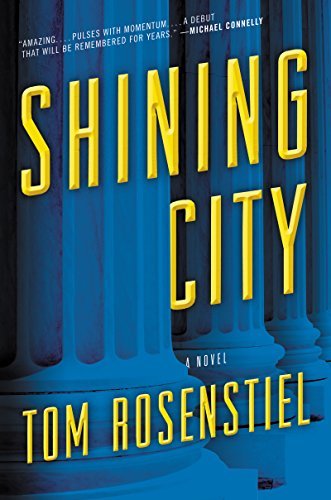
Shining City (Peter Rena #1) by Tom Rosenstiel (2017) 373 pages ★★★★★—An insider’s view of Washington politics
He’s a private detective of a sort but is never called that. Some refer to him as a fixer or a problem-solver. But Peter Rena and his partner, Randi Brooks, don’t think of themselves as problem-solvers. ‘They never fixed problems—they just ended them.” Their consulting firm, Brooks, Rena, and Toppin, advertises “Research and Security.” In reality, they’re crisis consultants. They go to work when things go bad. But they stand out from the K Street crowd in that the firm works with both Republicans and Democrats. In a time when partisanship reigns in Washington politics, they’re regarded as freaks.
Rena himself is ex-military and a Republican. Brooks is an outspoken liberal Democrat. (Their ex-partner, Toppin, is retired.) But “most of their work isn’t political; corporations wanting background checks on potential CEOs or troubled executives, law firms with big cases, sports teams with stars in a fix or draft prospects surrounded by rumors.” However, as Shining City opens, Rena is involved in a political case.
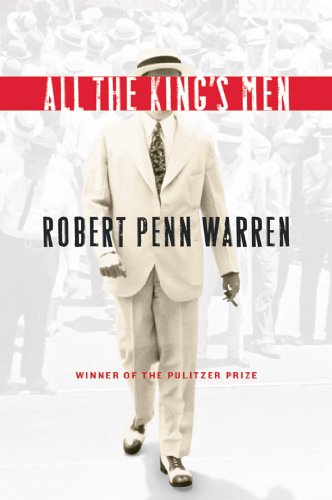
All the King’s Men by Robert Penn Warren ★★★★☆—Was politics during the Great Depression really like this?
Robert Penn Warren’s 1946 novel, All the King’s Men, is widely regarded as one of the best American novels ever written. Seventy years after its publication, it appears on high school and college reading lists throughout the country. Partly because of the Academy Award-winning film of the same title in 1949 and several different stage adaptations over the years, the book has taken on iconic status and has come to be regarded as a classic, perhaps the classic, story about American politics. I’m not sure it deserves that distinction. But it is, without question, an eye-opening novel about the Great Depression.
Anyone familiar with American history in the 1930s will recognize the name Huey P. Long. Nicknamed “The Kingfish,” Long was the demagogic governor, then U.S. Senator, from Louisiana who roiled the American political scene for many years until he was assassinated in 1935. His “Share the Wealth” program, aimed at bankers and the rich, threatened to upend the New Deal, which by necessity was far more moderate. In All the King’s Men, a Southern populist named Willie Stark resembles Long in a few, but far from all, ways.
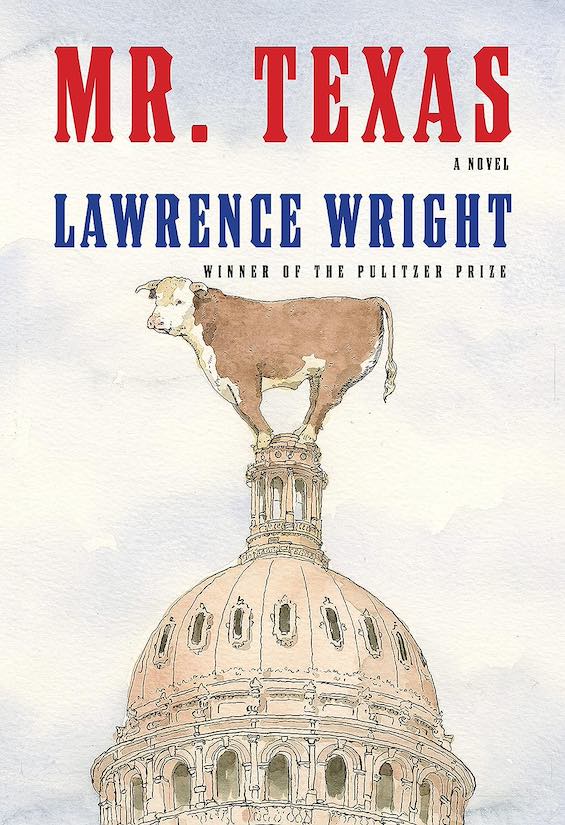
Mr. Texas by Lawrence Wright (2023) 336 pages ★★★★★—How the sausages are made in today’s Texas
To understand how the American political system is unraveling, look no further than the state of Texas. Although Republicans had been making gains since John Tower won LBJ’s seat in the United States Senate in 1961, it wasn’t until 2003 that the Texas Republican Party gained undisputed control of state government. And the result has been a veritable flood of Right-Wing legislation. Banning abortion. Shrinking the electoral rolls. Building another wall against Mexico. Gerrymandering. Allowing people to carry guns in public, and without a license. Showering Big Oil with tax breaks while climate change rains misery down on its citizens. And for a look behind the scenes at the state capitol, where these bills were enacted, there’s no better place to start than Lawrence Wright’s brilliant new satirical novel about Texas politics, Mr. Texas.
Not quite the best novels about politics
Imperium – Cicero Trilogy #1 (2006) 305 pages—The first novel in Harris’ trilogy about the life of the legendary Roman orator Cicero
Conspirata (Ancient Rome Trilogy #2) by Robert Harris (2001) 401 pages ★★★★☆—Ancient Rome, before the fall
Dictator (Ancient Rome Trilogy #3) by Robert Harris (2015) 384 pages ★★★★☆—Cicero, witness to history
Conclave by Robert Harris (2016) 304 pages ★★★★☆—A thriller about Vatican politics
Act of Oblivion by Robert Harris (2022) 477 pages ★★★★☆—They killed the king. Will they pay the price?
Night of Camp David by Fletcher Knebel (1965) 347 pages ★★★★☆—A novel that anticipated Donald Trump, five decades ago?
Landfall by Thomas Mallon (2019) 497 pages ★★★★★—A novelist’s sympathetic portrait of George W. Bush
Dewey Defeats Truman by Thomas Mallon (1997) 368 pages ★★★★☆—From Thomas Mallon, a terrific political history novel
Fellow Travelers by Thomas Mallon (2007) 368 pages ★★★★★—Thomas Mallon on America’s third Red Scare
Watergate by Thomas Mallon (2012) 448 pages ★★★★☆—Watergate through a novelist’s eyes
The Good Lie (Peter Rena #2) by Tom Rosenstiel (2019) 332 pages ★★★★☆—An insightful Washington political thriller
Oppo (Peter Rena #3) by Tom Rosenstiel (2019) 336 pages ★★★★☆—Political opposition research dominates this edgy thriller
The Days to Come (Peter Rena #4) by Tom Rosenstiel (2021) 368 pages ★★★★☆—This new President tries to address climate change
Surrounded by Enemies by Bryce Zabel (2015) 342 pages ★★★★☆—What if JFK had survived Dallas?
For related reading
I’ve also reviewed what many consider the classic political novel Advise and Consent by Allen Drury (1959) 706 pages ★★★☆☆—This novel is set at a time when Congress worked well). But I do not recommend it, as you can see by the lower rating.
You’ll also find great books to read at:
- Top 10 nonfiction books about politics
- 20 most enlightening historical novels
- Top 10 great popular novels
Somehow, I’ve managed to read more than twenty nonfiction books about Donald Trump, which I do not propose to copy here. You’ll find them at The top 5 books about Donald Trump. None of them appear above because they’re all nonfiction.
As always, you can always find my most popular reviews, and the most recent ones, on the Home Page.

